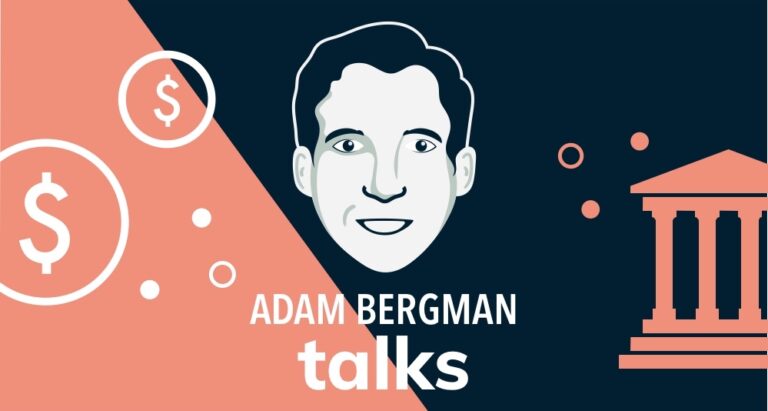IRA Financial’s Adam Bergman discusses the first thing you should do when you graduate college and start you first job, to become a millionaire at retirement.
In his latest podcast, Mr. Bergman talks about what every college graduate should do first when he or she starts a new job. Hint: Start saving for retirement after college! The key to becoming a millionaire when you retire is to start early, be consistent and “trust the process.” In the following, we’ll summarize his thoughts with a simple guide.
Why Start Saving for Retirement After College?
That’s a question that gets asked all the time. You just graduated college and started your first job. Why should you think about retirement while you’re still in your early twenties? Time! The earlier you start, the more time your retirement account has to grow. Just think if you start saving for retirement after college, you will have 40+ years of tax-advantaged savings. See below for examples.
If your first time working is when you get out of college, then your first plan will usually be a 401(k) offered by your employer. If yours does not offer one, it may be time to look for a new job! It’s key to check the details of the plan to see if there is an employer match. This is the best way to jump-start your retirement savings. A typical match is 50% of your contribution, up to a max of 6% of your salary. Ideally, you want to at least contribute enough to get the full match.
But it’s just not your workplace plan you should look at. Even if your job offers a plan (could be a SEP or SIMPLE IRA for smaller companies), you should look into IRAs as well. This is especially true if you do not have access to a plan at work, or you are self-employed. Whatever retirement plan you decide to use, it’s best to start funding it as soon as possible.
Roth or Traditional?
Once you decide to start saving, next you need to decide to go with a traditional plan or a Roth option. Both have major tax advantages. The only difference is when you receive them. Traditional plans offer an upfront tax-break. Any money you contribute to one, you will not be taxed on for that year. The taxes are tax-deferred until you withdraw them during retirement. For example, let’s say you earn $40,000 during the year and you contribute $5,000 to your 401(k). When your tax bill comes the following year, you will only be taxed on $35,000.
However, if you opt for a Roth plan, you do not receive an immediate tax break. Instead, the plan is funded with after-tax dollars. Instead, all qualified withdrawals are tax-free. This means you will never pay taxes on your Roth distributions.
For college graduates just entering the workforce, it’s generally better to opt for the Roth. Typically, your first job is much lower paying. Therefore, the upfront tax-break is not as important. You’re better off with tax-free growth. As you get older and start earning more money, the tax-break may be worth it. However, it’s a good plan to fund both a Roth and traditional plan over the long run. This protects you from rising interest rates, inflation and market fluctuations.
Consistency Pays Off
Once you start saving for retirement after college, you are on the right track. However, it can quickly derail if you’re not consistent. In the following, we’ll show some examples of how being consistent really pays off over the long haul.
As a base for our examples, we’ll assume there’s a $0 starting balance, starting at age 22 and contributing to age 65. The annual rate of return will be 8%.
- Contributing just $1 a day ($365 year) will get you $129,922. That’s from $15,695 in total contributions.
- If you contributed $1,000 annually, you will have $355,950 at age 65. That’s $43,000 in total contributions.
- If you contributed $5,000 per year, your IRA would be worth nearly $1.8 million! That’s from a total contribution of $215,000.
This shows how being consistent really pays off. What it doesn’t show, is that your IRA will grow even faster if you choose to increase your contribution when possible. Did you receive a pay raise? Up your annual contribution. Get a nice bonus? Contribute it directly to your plan. Every little bit helps.
What if You’re not Consistent?
Let’s say you put $1,000 in at age 22 and never touched it again. By the time you reach age 65, your IRA will be worth $27,367 (assuming an 8% return). Not exactly enough to retire on, is it?
What if you accumulated $50,000 in your plan by age 40 and decided to stop funding it? It will grow to just $342,424. If instead, you choose to contribute $2,000 per year until age 65, you will hit half a million dollars.
The numbers don’t lie! You just need to trust the process. Retirement is a long way off, so take advantage of that time by consistently funding your retirement plan(s).
Conclusion
I’m sure you’ve heard the old joke, “How do you get to Carnegie Hall?” Practice, practice practice! How do you get to retirement? Save, save, save! When you start, how consistent are you and how patient you are, are the keys to become a millionaire at retirement. Saving for retirement after college should be at the very top of your financial goals when you start your first job.
If you have any questions about this or any other topic, feel free to contact us @ 800.472.0646. Thanks for listening and be sure to check out our older podcasts!











